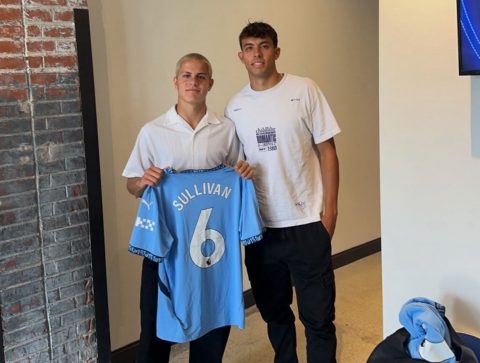In a surprising revelation, Porto’s president, Villas-Boas, has detailed the clandestine tactics employed to secure the signings of talented young players Omorodion and Samu. The club’s strategic approach underscored the necessity of secrecy in the competitive world of football transfers, ensuring no leaks were disclosed in these high-stakes deals.
Securing Omorodion: A Top Secret Mission
Porto’s acquisition of Omorodion was shrouded in secrecy, with Villas-Boas asserting that the approach was critical. “It was the only way to get it done, avoid leaks, and complete the transfer quickly,” said the Porto president. Such secrecy highlights the intricate chess game of football transfers, where information leakage can dramatically affect outcomes.
The Complexity Behind Transfer Secrecy
In an industry where clubs are continually vying for the top talent, keeping valuable information under wraps can be a daunting task. Leaks can lead to bidding wars, driving prices skyward and complicating negotiations. Porto’s success in maintaining confidentiality with Omorodion’s transfer underlines the club’s adept handling of delicate negotiations.
Samu’s €15 Million Investment
With the Portuguese club investing €15 million for a 50% stake in Samu, Villas-Boas acknowledged that discretion was paramount in this deal as well. “If the other clubs knew about that, for sure it was gonna be a complicated one,” he noted, emphasizing the competitive landscape and the need for strategic opacity.
Financial and Strategic Implications
The acquisition of Samu, a promising young talent, for a substantial sum reflects Porto’s commitment to building a formidable team for the future. The financial commitment also signifies the club’s strategic vision, betting on young talent to continue its legacy of excellence in the Primeira Liga and across European competitions.
Impact on Porto’s Future
These key acquisitions reinforce Porto’s position as a leading force in the Primeira Liga. By securing emerging talents like Omorodion and Samu, Porto signals its intent to maintain strong competitive performances domestically and in European tournaments. This approach aligns with a broader strategy of investing in young players who can develop into integral parts of the team’s success.
Porto’s adept manoeuvring in the transfer market not only strengthens their squad but also sends a message of serious intentions in nurturing talent while ensuring financial prudence. The ability to carry out such strategic deals, shielded from the prying eyes of rivals, showcases Porto’s prowess in managing both its present challenges and future ambitions.









